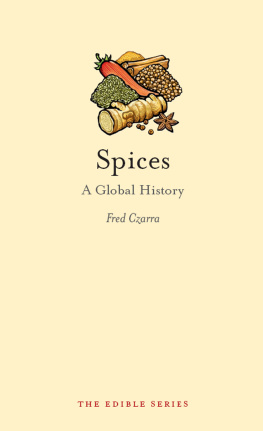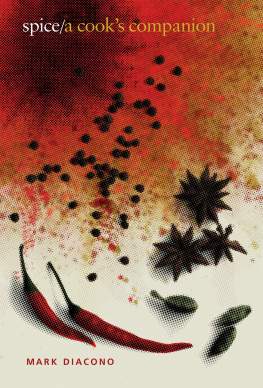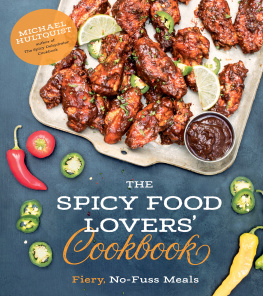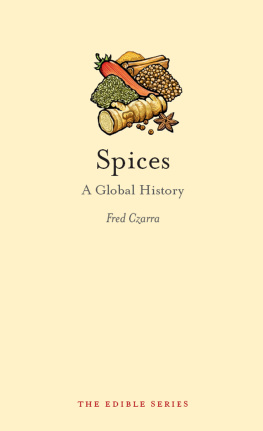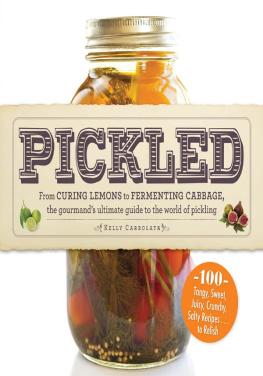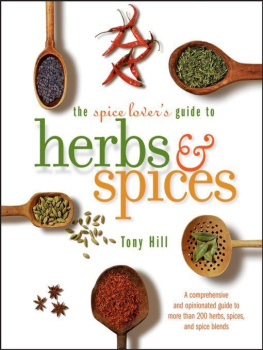Fred Czarra - Spices: A Global History
Here you can read online Fred Czarra - Spices: A Global History full text of the book (entire story) in english for free. Download pdf and epub, get meaning, cover and reviews about this ebook. year: 2009, publisher: Reaktion Books, genre: Home and family. Description of the work, (preface) as well as reviews are available. Best literature library LitArk.com created for fans of good reading and offers a wide selection of genres:
Romance novel
Science fiction
Adventure
Detective
Science
History
Home and family
Prose
Art
Politics
Computer
Non-fiction
Religion
Business
Children
Humor
Choose a favorite category and find really read worthwhile books. Enjoy immersion in the world of imagination, feel the emotions of the characters or learn something new for yourself, make an fascinating discovery.
- Book:Spices: A Global History
- Author:
- Publisher:Reaktion Books
- Genre:
- Year:2009
- Rating:4 / 5
- Favourites:Add to favourites
- Your mark:
Spices: A Global History: summary, description and annotation
We offer to read an annotation, description, summary or preface (depends on what the author of the book "Spices: A Global History" wrote himself). If you haven't found the necessary information about the book — write in the comments, we will try to find it.
The scent of oregano immediately conjures the comforts of Italian food, curry is synonymous with Indian flavor, and the fire of chili peppers ignites the cuisine of Latin America. Spices are often the overlooked essentials that define our greatest eating experiences. In this global history of spices, Fred Czarra tracks the path of these fundamental ingredients from the trade routes of the ancient world to the McCormicks brands contemporary domination of the global spice market.
Focusing on the five premier spicesblack pepper, cinnamon, nutmeg, cloves, and chili pepperwhile also relating the story of many others along the way, Czarra describes how spices have been used in cooking throughout history and how their spread has influenced regional cuisines around the world. Chili peppers, for example, migrated west from the Americas with European sailors and spread rapidly in the Philippines and then to India and the rest of Asia, where the spice quickly became essential to local cuisines. The chili pepper also traveled west from India to Hungary, where it eventually became the national spicepaprika.
Mixing a wide range of spice fact with fascinating spice fablesuch as giant birds building nests of cinnamonCzarra details how the spice trade opened up the first age of globalization, prompting a cross-cultural exchange of culinary technique and tradition. This savory spice history will enliven any dinner table conversationand give that meal an unforgettable dash of something extra.
Fred Czarra: author's other books
Who wrote Spices: A Global History? Find out the surname, the name of the author of the book and a list of all author's works by series.

